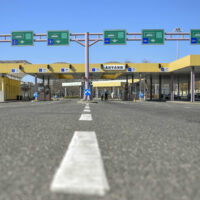The Safest Way to Travel: How to Stay Safe When Using Transportation
Until the world opens fully, the accepted guidance is to remember to safeguard yourself and others if you must travel.
Vaccination holds the key to safe travel. The (CDC) Centers for Disease Control and Prevention suggests deferring trips until you’ve been double vaccinated as you’re less likely to obtain and spread COVID-19. Foreign travel can still increase your risk of contracting new COVID-19 variations unless strict precautions are taken.
Consider the following questions when you make travel plans before you set out on your journey.
Check the local criteria for safe guidance
Some state, local, and territorial governments have policies forcing people to wear masks or get tested and require those who have recently traveled to stay at home for up to 14 days.
Check for limits at your destination and any potential stops along the road to avoid unpleasant surprises and delays. Keep in mind that, depending on local conditions, regulations can change quickly.
It’s also vital to remember that the COVID-19 situation differs per country, including the extent of distribution and presence of variants. As your vacation approaches, check back for updates.
Testing and travel – vaccinated people
The CDC states that those who have been fully vaccinated do not need to test before or after a vacation in the United States, nor do they need to quarantine once they return.
If you plan to travel overseas outside of the United States, the CDC recommends that you get tested only if it is required at your destination. You must have a negative test within the past three days of your arrival or documentation of COVID-19 recovery within the last three months before entering the United States.
European regulations state that even vaccinated people may require a straightforward PCR test on arrival to other European countries.
General tips for safe travel
Even if you are double vaccinated, you must wear a face mask on planes, buses, trains, and other types of public transportation in the United States. The mask should be snug and completely cover your mouth and nose.
If you haven’t had the COVID-19 vaccine, take the following precautions to protect yourself and others while traveling:
- Distance yourself to the tune of 2 meters between you and others.
- Avoid coming into contact with somebody who is ill.
- Handrails, elevator buttons, and kiosks are examples of regularly touched surfaces. If you must touch these surfaces, wash your hands afterward or use hand sanitizer.
- When there is a danger of COVID-19 transmission indoors or outdoors, such as a crowded or large gathering, wear a face mask.
Air travel is safe – here’s why
Most viruses don’t transmit easily aboard planes due to the way air moves and are filtered. However, social distancing is difficult on crowded planes. Additionally, flight travel necessitates time spent in security lines and airport terminals, putting you close to other people.
The Transportation Security Administration (TSA) has boosted the cleaning and disinfection of surfaces and equipment at screening checkpoints, including bins. The TSA has made the following adjustments to the screening process:
- During the screening process, passengers must wear masks.
- TSA agents may, however, ask travelers to alter their masks for identification concerns.
- Passengers should scan boarding cards and then hold them up for examination.
- Each traveler may bring one container of hand sanitizer weighing up to 12 ounces (350 milliliters).
- Passengers should carry personal belongings like keys, wallets, and phones in clear bags rather than in cases. Clear bags ready for inspection decrease the amount of handling time during screening.
- Food items should be transferred in a plastic bag and then screened in a bin. Staff will be less likely to need to open carry-on baggage for inspection.
Commercial air travel is still tricky, with disruption and delays inevitable as the pandemic creates global problems.
Fly Private
Flying by private jet means passengers are at a lower risk of being exposed. Most significantly, business travelers seeking to reduce danger to themselves and others turn to private jet services to keep crucial aspects of their operations running without the associated risks.
All private aviation passengers can avoid airport congestion by flying through a separate terminal dedicated to private jets. Security checks are also speedier at private jet terminals than at commercial airports, and there are no lines.
Background information of pilots and crew is freely available when using private jet charters, and passengers may verify the trip history of their pilots and flight attendants as part of the service and safety rules, thus limiting the chances of infection.
If anyone is concerned, they can find out where their employees have lately flown and other pertinent information. It is in the private jet industry’s best interests to have precise records that are always accessible.
Traveling by Car
You might not be a fan of flying. You may prefer to drive since it allows you to have greater control over your surroundings. Being cautious about any stops you make is still a concern, but travelers can accomplish that with a bit of forethought. Here are some things to muse on before hitting the road:
- Plan to stop as little as possible, but if you grow drowsy, pull over.
- Make sure to keep face masks, hand sanitizer, and disinfection wipes in a convenient location so you can use them as needed during your vacation.
- Prepare food and drink for the journey. Considering bringing nonperishable foods to hold you over if you have limited access to restaurants and grocery stores is a great idea.
Sometimes it can be difficult to believe the restrictions we have to abide by now will not be in place forever. There’s little doubt life will never be the same again, but it is possible to travel safely if you follow the guidelines and as time goes on, the rules and regulations will subside, and what we used to call ‘normal life’ will return in one form or another.
“This article does not necessarily reflect the opinions of the editors or management of DNH.“
please make a donation here
Hot news
BREAKING: New Hungarian airline founded with Chinese help
Chinese edition of book on Hungarian strategy written by Balázs Orbán launched
Debrecen BMW plant construction reaches important milestone
ETSC proposes significant restrictions on the use of e-scooters in EU countries, including Hungary
Hungary praises Albania’s progress on path to integration
Top Hungary news: Budapest Airport runway closed, Airbnb moratorium, overhauled Budapest parking system, explosions — 28 November, 2024




